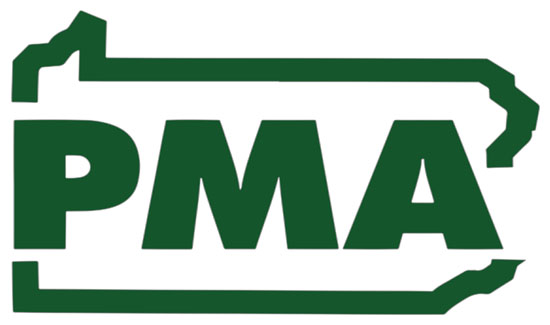Budget Hearings Offer Lawmakers First Crack at Governor’s (Over) Spending

Over the next month, Governor Tom Wolf’s sixth annual tax-and-spending proposal will undergo the critical review of the House and Senate Appropriations Committees.
This year’s budget hearings will inevitably resemble past ones: Republicans will make their case for rejecting the litany of new taxes, reallocating misdirected funds, and turning away some of the governor’s FY 2020-21 Budget-related proposals.
“Like déjà vu all over again, Governor Wolf’s budget proposal is strikingly similar to last year’s,” PMA President & CEO David N. Taylor said after the governor introduced the budget last Tuesday. “The Wolf plan does not prioritize competitiveness and doesn’t do anything to make businesses want to locate, hire, or expand here in Pennsylvania rather than in one of our competitor states.”
This year, the governor is proposing, yet again, to slap the energy industry with another new, additional tax, and he’s still trying to resuscitate a wrongheaded corporate tax complication first introduced all the way back in Governor Ed Rendell’s first term in the early 2000s. He’s also pulling out his best Barack Obama “I’ve got a pen and a phone” impression by unilaterally entering Pennsylvania into a regional carbon tax scheme that stifles economic growth, and his administration has already imposed a costly overtime rule that far exceeds recently updated federal standards.
Overall, the governor is asking for a General Fund budget with a $36.1 billion price tag, which would more than burn through all the healthy revenues being generated by the strong national economy. While the Wolf Administration has no interest in fiscal restraint, Pennsylvania’s legislative leaders are urging caution.
“The Commonwealth has not been in this solid of a financial position in more than a decade,” Senate Appropriations Chair Pat Browne (R-Lehigh) said in reaction to the governor’s budget presentation. “While this is certainly welcome news, it is critical now, more than ever, that we remain fiscally disciplined and cautious when setting budget priorities and a FY 2020-21 spending number. The Governor’s budget proposal contains large spending increases over the previous year of 4.5 percent, which is well over the rate of inflation and considerably higher than previously enacted budget spending increases. That, coupled with a significant number of supplemental increases by the Governor, creates a risky financial profile for the future of the Commonwealth.”
The governor’s plan rejects the pro-growth approach that has rallied the U.S. economy, threatening to leave Pennsylvania further behind the rest of the nation. He is again asking for a new, additional tax on natural gas extraction under the false premise that the industry pays no taxes; Pennsylvania’s natural gas impact fee has funded over $1.5 billion for environmental programs and local government projects. Over the objections of both the skilled trades and manufacturers, he has promised to veto legislation (HB 1100) that would establish a production-based tax credit for petrochemical manufacturing using methane. The new plan is comparable to the credit that enticed Shell Polymer to build the ethane cracker plant in Beaver County, which is currently the largest construction site in North America, employing nearly 7,000 skilled tradesmen. House Bill 1100 received broad bipartisan support – enough to override the veto in both chambers.
He is proposing a mandatory unitary combined reporting (MUCR) system that would seek to impose Pennsylvania state tax liability on a company’s operations in other states. Because every state has its own system of taxation – with its own set of taxes, rates, definitions, and tests of applicability – Pennsylvania taxpayers will lose all predictability in tax compliance as every encounter with the Department of Revenue will be a negotiation. When the Department inevitably chooses the interpretation that maximizes collections to the Commonwealth, taxpayers will sue, sending the disputed sums into escrow and rendered unusable by either business or government. Given Pennsylvania’s already established add-back provisions, national experts predict little to no windfall for the Commonwealth if MUCR were to be adopted. What we do know is that the change will surely add to the cost of doing business in Pennsylvania, further harming our competitiveness.
He is still insisting on an increase in the minimum from the mandated federal of $7.25 to $12, and eventually to $15, destroying entry-level job opportunities for young and unskilled workers.. This is on top of an executive order, recently finalized by the Independent Regulatory Review Commission, to raise the income threshold for mandatory overtime pay.
- More on the minimum wage proposal here (http://www.pamanufacturers.org/pma-bulletin/hike-mandated-wage-would-hurt-very-people-gov-wolf-says-he-wants-help
- More on the mandatory overtime pay proposal here (http://www.pamanufacturers.org/pma-bulletin/wolf%E2%80%99s-proposed-overtime-rule-slams-taxpayers-and-employers
Finally, in October the governor signed an order that places Pennsylvania in a regional cap-and-trade program (RGGI) that not only stifles economic growth but is also proven ineffective at lowering emissions. Pennsylvania has reduced carbon emissions by a greater amount and to a greater degree than the states in the compact, and, because the compact is based on earning credits by reducing emissions, for Pennsylvania to join the compact now would be like the last guest at the party being stuck with everyone else’s bar tab.
“It important to ensure that environmental regulation is approached on sound scientific evidence to ensure that regulations are reasonable and within technological limits,” said Carl A. Marrara, PMA’s VP of Government Affairs before the House Environmental Resources and Energy Committee last week. “It is likewise prudent that these regulations actually achieve real environmental benefits and do not advantage one sector of the economy to the detriment of another. RGGI fails all of these bright-line tests and should be rejected by Governor Wolf and the Pennsylvania General Assembly.”
The state’s economy has benefited from the General Assembly rejecting the governor’s past requests for higher spending and taxes. Republican leaders have rightly taken the credit. Every indication is that they will again beat back the governor’s dream of growing government and making Pennsylvania less desirable for business investment.







